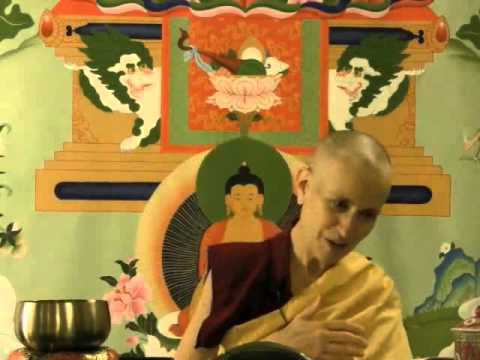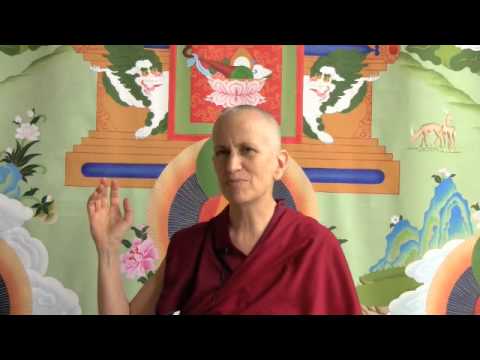Dependent arising: Dependence on parts
Dependent arising: Dependence on parts
Part of a series of Bodhisattva’s Breakfast Corner talks given during the Green Tara Winter Retreat from December 2009 to March 2010.
- Dependence on parts pertains to impermanent and permanent things
- Permanent space has north, south, east, west, etc.
- Emptiness has parts: the emptiness of each thing that is empty
Green Tara Retreat 053: Dependent arising and dependence on parts (download)
The first level of dependent arising, or the first type of dependent arising, is causal dependence, that we talked about yesterday. Things depending on causes, causes producing results, results depending on those causes.
The second type in this particular scheme—there is another scheme that I will describe later—of dependent arising is dependence on parts. Whereas the first kind, depending on causal dependence, pertains only to functioning things, things that are produced by causes and conditions, dependence on parts includes also permanent things. It includes all the phenomena.
You might ask, “Well, how does a permanent thing depend on parts?” When you talk about empty space, which is the lack of obstruction and tangibility, then you can talk about the space in the east, the space in the west, in the north, in the south. Those are called the parts of space. The existence of space as a whole is dependent on it having parts.
In the same way, we talk about emptiness as if it’s one thing. Actually emptiness also has parts. There is the emptiness of Manju [the cat], and the emptiness of you [pointing to one person], and the emptiness of you [pointing to another person], and of you, and the carpet, and everything else. When we talk about emptiness as a whole, it’s because it has the parts: all these different things, the emptiness of all these different phenomena.
Because things are composed of parts they also can’t be inherently existent. Something that’s inherently existent doesn’t depend on anything. It exists in and of itself without depending on any other factors, including parts. When you meditate that things are depending on parts, then you can negate them being inherently existent.
Today your homework is: go around and look at everything as being dependent on parts. As we go for lunch we see lunch as a whole. Actually there are different dishes. If you look at each dish, each dish is made of different parts. You might say, “Rice is all one thing.” Well, no, there is each individual grain. The whole pot of rice is dependent on each individual grain and each individual grain also has its parts.
We can do this in terms of our body too by dissecting the body into parts mentally. When you do this then you lose the sense of body. Like what I was saying the other day: by looking at the tree and just seeing the parts, you lose the sense of the whole. In that way you see how perceiving a larger whole is dependent upon there being parts.
Audience: Can you explain why something could not have parts and be inherently existent? What is the something that does inherently exist and does not have parts or does not depend on parts? Maybe I didn’t hear it correctly./p
Venerable Thubten Chodron: If something is inherently existent, it cannot depend on parts because dependence precludes independence.
Venerable Thubten Chodron
Venerable Chodron emphasizes the practical application of Buddha’s teachings in our daily lives and is especially skilled at explaining them in ways easily understood and practiced by Westerners. She is well known for her warm, humorous, and lucid teachings. She was ordained as a Buddhist nun in 1977 by Kyabje Ling Rinpoche in Dharamsala, India, and in 1986 she received bhikshuni (full) ordination in Taiwan. Read her full bio.


